
Something Big is a 1971 American Western comedy film directed by Andrew V. McLaglen. Produced by McLaglen and screenwriter James Lee Barrett, the film stars Dean Martin, Honor Blackman and Brian Keith.

William Brian de Lacy Aherne was an English actor of stage, screen, radio and television, who enjoyed a long and varied career in Britain and the United States.

Merrily We Live is a 1938 American comedy film directed by Norman Z. McLeod and written by Eddie Moran and Jack Jevne. It stars Constance Bennett and Brian Aherne and features Ann Dvorak, Bonita Granville, Billie Burke, Tom Brown, Alan Mowbray, Clarence Kolb, and Patsy Kelly. The film was produced by Hal Roach for Hal Roach Studios, and was distributed by Metro-Goldwyn-Mayer.

Torch Song is a 1953 American Technicolor musical drama film distributed by Metro-Goldwyn-Mayer and starring Joan Crawford and Michael Wilding in a story about a Broadway star and her blind rehearsal pianist. The screenplay by John Michael Hayes and Jan Lustig was based upon the story "Why Should I Cry?" by I.A.R. Wylie in a 1949 issue of The Saturday Evening Post. The film was directed by Charles Walters and produced by Sidney Franklin, Henry Berman and Charles Schnee. Crawford's singing voice was dubbed by India Adams.

Sylvia Scarlett is a 1935 American romantic comedy film starring Katharine Hepburn and Cary Grant, based on The Early Life and Adventures of Sylvia Scarlett, a 1918 novel by Compton MacKenzie. Directed by George Cukor, it was notorious as one of the most famous unsuccessful movies of the 1930s. Hepburn plays the title role of Sylvia Scarlett, a female con artist masquerading as a boy to escape the police. The success of the subterfuge is in large part due to the transformation of Hepburn by RKO makeup artist Mel Berns.

Overboard is a 1987 American romantic comedy film directed by Garry Marshall, written by Leslie Dixon, starring Goldie Hawn and Kurt Russell, and produced by Roddy McDowall, who also co-stars alongside Edward Herrmann and Katherine Helmond. The film follows a demeaning, wealthy socialite who suffers from amnesia after falling from her yacht while vacationing on the Oregon Coast, only to be taken in by a working-class carpenter whom she had mistreated.

Willard Parker was an American film and television actor. He starred in the TV series Tales of the Texas Rangers (1955–1958).
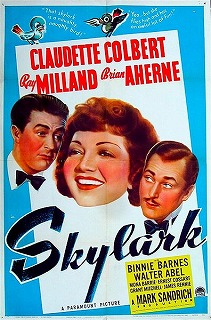
Skylark is a 1941 American comedy film directed by Mark Sandrich and starring Claudette Colbert, Ray Milland and Brian Aherne. It was produced and distributed by Paramount Pictures. Film historian James H. Farmer described Skylark as "light-hearted fluff" with the story of a woman on her fifth wedding anniversary, realizing that she is fed up with always coming in second to her husband's advertising business. Just at that moment, she meets a handsome attorney, and their innocent flirtation begins to turn into something more serious.
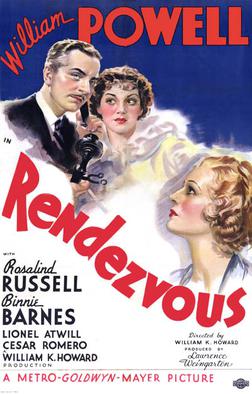
Rendezvous is a 1935 American spy film set in World War I, directed by William K. Howard, starring William Powell and Rosalind Russell and featuring Binnie Barnes, Lionel Atwill, Cesar Romero and Samuel S. Hinds. Powell plays an American cryptologist who tangles with German spies while falling in love.

Evelyn Prentice is a 1934 American crime drama film starring William Powell and Myrna Loy, and featuring Una Merkel and Rosalind Russell in her film debut. The movie was based on the 1933 novel of the same name by W. E. Woodward. Filmed between the original Thin Man and the first of its sequels, William Powell and Myrna Loy are re-teamed as another husband-and-wife team knee deep in a murder mystery.

Mourning Becomes Electra is a 1947 American drama film by Dudley Nichols adapted from the 1931 Eugene O'Neill play Mourning Becomes Electra, based in turn on the Oresteia. The film stars Rosalind Russell, Michael Redgrave, Raymond Massey, Katina Paxinou, Leo Genn and Kirk Douglas.

Rosie! is a 1967 American comedy film directed by David Lowell Rich, based on Ruth Gordon's play A Very Rich Woman.

This Is My Affair is a 1937 American period crime film directed by William A. Seiter and starring Robert Taylor, Barbara Stanwyck, Victor McLaglen and Brian Donlevy. It was produced and released by 20th Century Fox.
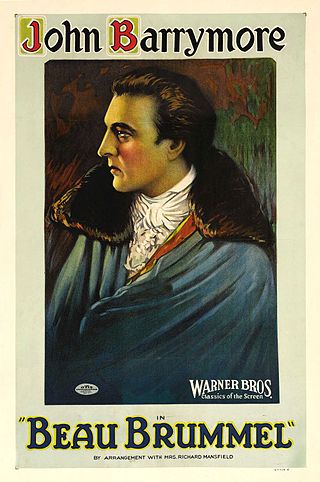
Beau Brummel is a 1924 American silent historical drama film starring John Barrymore and Mary Astor. The film was directed by Harry Beaumont and based upon Clyde Fitch's 1890 play, which had been performed by Richard Mansfield, and depicts the life of the British Regency dandy Beau Brummell.

Man-Proof is a 1938 American romantic comedy film directed by Richard Thorpe. The film is based on the 1937 novel The Four Marys written by Fannie Heaslip Lea.

What Every Woman Knows is a 1934 American romantic comedy film directed by Gregory La Cava and starring Helen Hayes, Brian Aherne and Madge Evans. The film was produced and distributed by Metro-Goldwyn-Mayer and is based on the play What Every Woman Knows (1908) by J. M. Barrie. It was filmed by Paramount back in the silent era in 1921 and stars Lois Wilson. An even earlier British silent version was filmed in 1917. Hayes was familiar with the material as she had starred in a 1926 Broadway revival opposite Kenneth MacKenna.

Smart Woman is a 1948 American romantic drama film directed by Edward A. Blatt and starring Brian Aherne, Constance Bennett, and Barry Sullivan.
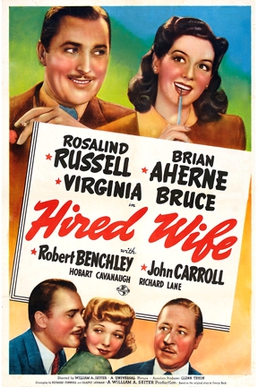
Hired Wife is a 1940 American romantic comedy film directed by William A. Seiter and starring Rosalind Russell, Brian Aherne and Virginia Bruce.
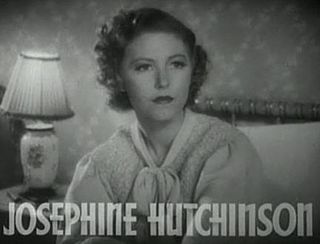
I Married a Doctor is a 1936 American drama film directed by Archie Mayo and written by Casey Robinson. It is an adaptation of Sinclair Lewis’s novel Main Street. The film stars Pat O'Brien, Josephine Hutchinson, Ross Alexander, Guy Kibbee, Louise Fazenda and Olin Howland. The film was released by Warner Bros. on April 25, 1936.
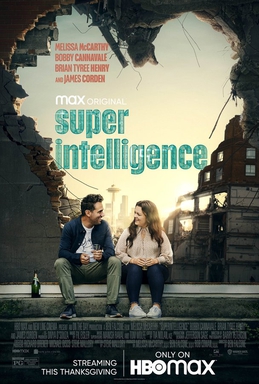
Superintelligence is a 2020 American romantic action comedy film directed by Ben Falcone and written by Steve Mallory. The film stars Melissa McCarthy in her fourth collaboration with her husband, Falcone.




















